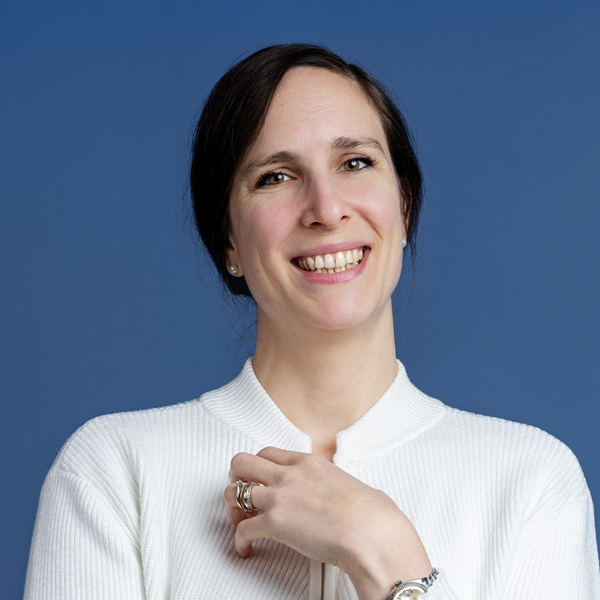Annemiek Hermans
Employee portrait

Annemiek Hermans
‘Project work and scientific research: a fun challenge!’
Ecologist Annemiek Hermans specialises in nature-friendly solutions for offshore wind energy. Understanding the ecological challenges of the energy transition, she considers herself a ‘realistic ecologist’.
Perfectly evolved
‘I grew up partly on Terschelling, we spent holidays on Texel, my husband comes from Ameland, and we met each other on Schiermonnikoog. For as long as I can remember, I’ve felt a connection to the sea. As an ecologist, I gradually became specialised in cartilaginous fish, rays, and sharks. What I find so cool about cartilaginous fish is that they’re perfectly evolved! Millions of years ago, they discovered a recipe for living efficiently in the sea, aided by their ability to perceive both magnetic and electric fields. That’s a unique combination. But this advantage is now working against them, with so much activity on and in the sea for transporting energy. Our changing energy needs are the main cause of this, and habitats, foraging strategies and migration routes are in danger of being disrupted.’
Interesting puzzle
‘The North Sea offers everything that has made us strong: transport, protein, and now energy. At the same time, there’s a large unseen area: at the bottom, it’s cold and dark, green and grey. This makes the North Sea a mishmash of history, culture, activity and emotion. And it’s precisely into this mishmash that we have to integrate our new energy needs – solar and wind energy, hydrogen, and possibly also tidal energy in the future – in an ecologically responsible way. I find that an interesting puzzle, and that’s why I feel at home at Witteveen+Bos. After all, not many companies understand both the ecological and the technical side of the issue. I’m surrounded here by extremely knowledgeable and motivated colleagues.’

Win-win options
‘Our group’s credo is nature-inclusive design. We want to show that not every measure that promotes ecology also costs time and money. A smaller working area, for example, prevents unnecessary churning up of the seabed, but it’s also more efficient. Our challenge is to always look for win-win options. If you adapt a work schedule in advance to the foraging season of seabirds, then you reduce the chance of delays. Nature-inclusive measures, such as optimising erosion protection to provide fish with areas to shelter and grow, are the ultimate. As well as contributing as an ecologist on our marine projects, I also conduct research. Witteveen+Bos has given me the opportunity to do a PhD, which they’re also making an in-kind contribution to. It allows me to combine my drive to make a genuine impact with my passion for science. A fun challenge!’
More information?
